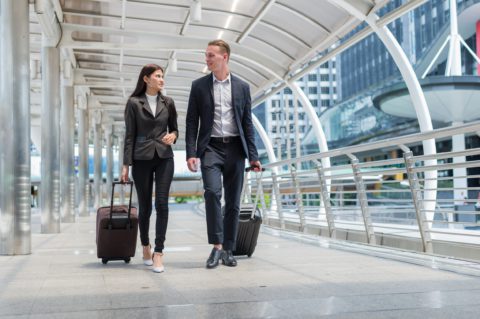Key factors to consider when
developing a Global
Mobility Policy
24 March 2022
A Global Mobility policy is your organisation’s internal set of guidelines which govern the international movement of your assignees. Creating a Global Mobility policy enables your business to have a clear plan in place when bringing in workers from overseas, and ensures the equal treatment of all your international employees.
In a previous article, Smith Stone Walters outlined the various immigration fees and other costs that employers should consider when developing a Global Mobility Policy for their organisation. However, there are several other important factors besides cost that should be taken into account when planning the international movement of your assignees.
Below, we set out some more key questions relating to other areas of immigration that HR and Global Mobility teams should ask themselves when creating a policy, and provide some background information on each to help you make the right decisions for your business.
Do your assignees require a Tuberculosis (TB) test in order to come to the UK?
Under UK immigration rules, individuals applying for a UK visa are required to have a Tuberculosis (TB) test if they are coming to the UK for more than six months and are resident in one of the listed countries identified by the Home Office.
The test certificate must be presented with the visa application. The test must be undertaken at a TB test centre that has been approved by the Home Office. In some cases, visa applicants may need to travel to another country in order to take a TB test at an approved centre. This brings us nicely onto our next consideration.
How far will your assignees need to travel to attend appointments and will you reimburse their travel expenses?
When applying for a UK visa, most applicants will need to attend an appointment at a UK Visa Application Centre (VAC) to enrol their biometric information (fingerprints and photograph). UK Visas and Immigration (UKVI) works with a number of commercial partners to run UK visa centres in country and overseas.
Before your assignee begins their visa application, they should check where their nearest VAC is. In some cases, their nearest application point may be in a different country. A full list of international application points can be found here. The locations of UK Visa and Citizenship Application Services (UKVCAS) centres for in-country applicants can be found here.
In addition to VAC appointments, your assignees may also need to travel to Home Office approved TB test centres and English language test centres, if applicable. If your assignee needs to travel some distance to attend an appointment, you should factor in the additional time and cost this will present and consider whether the business will offer any reimbursement for travel expenses incurred.
What will your organisation’s policy be if an employee’s visa or BRP is lost or stolen and they require a replacement?
When developing your Global Mobility policy, you should consider what the company’s stance will be in scenarios where the employee’s visa or Biometric Residence Permit (BRP) is lost or stolen and they need to apply for a replacement.
Your policy should clearly state who will be responsible for reporting the loss or theft to UKVI. For example, you may wish to state that it is the employee’s responsibility to look after their documents and therefore their responsibility to apply and pay for a replacement visa or BRP if it is lost or stolen.
If your assignee’s visa is lost or stolen, they can apply to replace it with a BRP. The fee and how to apply depends on their visa status. More information can be found here.
If your assignee’s BRP is lost or stolen, they must report it and apply for a replacement. Replacement BRPs can only be applied for from within the UK. If the loss or theft happens overseas, the assignee will need to apply for a ‘replacement BRP visa’, which will allow them to re-enter the UK once only. More information on applying for a replacement BRP can be found here.
How will you monitor to ensure business visitors attending your office are undertaking permitted engagements?
Your Global Mobility policy should also include guidelines for any international visitors to your offices. Different visa categories grant different permissions to the holder. For example, under a Standard Visitor visa, visitors can only undertake limited business activities such as:
- Attending interviews, meetings, conferences and seminars
- Negotiating and signing deals and contracts
- Carrying out site visits and inspections
- Giving a one-off or short series of talks as long as they’re not for profit or a commercial event
- Delivering training or sharing knowledge on internal projects with UK employees of the company the visitor works for overseas
If the work that the assignee will be undertaking at your organisation does not constitute any of the business activities permitted under the Standard Visitor route, they will need to apply for an alternative visa type.
If the international assignee is employed by a connected branch of your company overseas, they may be eligible to apply for an ICT visa (soon to be replaced by the new Global Business Mobility visa launching in April), which will allow them to work for you on a temporary assignment. SSW can provide advice on which visa category is best suited to your overseas business visitors.
Help with developing a Global Mobility policy
Smith Stone Walters can assist with developing a Global Mobility policy tailored to your business. To find out more, please contact us today.
Share story

